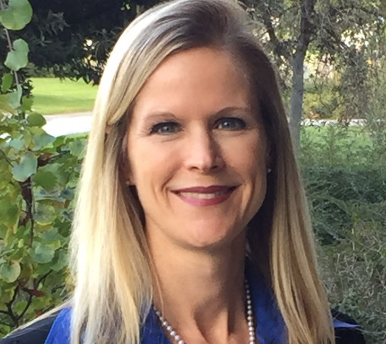University of Redlands Emergency Alert System
Alert Received: . For more information, visit: https://www.redlands.edu/alert/
University of Redlands


Renée Van Vechten (Ph.D., UCI) specializes in teaching and researching U.S. and California politics, with a focus on legislative processes. Her research also embraces the Scholarship of Teaching and Learning. She has participated in APSA's Teaching and Learning conference as a track moderator and paper presenter since 2008, is the immediate past president of the Political Science Education (PSE) organized section of APSA. In 2008 she was awarded the Rowman and Littlefield Award for Innovative Teaching in Political Science for a simulation she developed to teach Congressional processes. Her short text, California Politics: A Primer, is going into its fourth edition (CQ Press, 2016), and is based on a more comprehensive, forthcoming textbook (The Logic of California Politics). She has also developed collaborative websites designed to engage students in discussions about U.S. politics. Prior to joining the faculty at the University of Redlands (2003), she was a teaching fellow at the University of San Diego, and before that was a Kevin Starr Fellow in California Studies.
For the past four semesters, I have made a conscious effort to move drier, unidirectional information onto lecture videos to improve the interactivity levels in my classes, and have found the “flipped classroom” approach to be highly effective. Most of my students “love” it and I find that I have more time to devote to more interesting activities in the face-to-face setting. I’ve been surprised at how much more the students pay attention to what’s in the videos, as they tend not to listen as closely in class – and many students don’t take notes. Having taught introductory courses for about 15 years, and having assessed them at different points in time and in different ways (including surveys about their use of the technology), I am convinced that moving more content strategically and purposefully is highly beneficial for student learning. In Fall 2015 I began to record some of my lectures for POLI 111 so that I could “free up” more classroom time for discussion and activities. (Note that these videos were quite long and I continue to use them – but I would like to rework them in this iteration.) I continued that effort into Spring 2016, and continued to make more videos in Fall 2016. In Spring 2017 I expanded my POLI 111 lecture video library considerably, thanks to an aTUG grant. Student responses to the lecture videos continue to be overwhelmingly positive. Undergraduates of all class levels report positive experiences in the surveys that I have given them (Fall 2016 and Fall 2017). They appreciate having the ability to backtrack if they have missed anything, take notes at their leisure, access the material when they want, and review materials prior to exams. Because (with practice) I’ve become more effective at presenting and capturing information efficiently, they find the videos highly informative and useful overall. During Spring 2017 (through May 2017) I figured out how to integrate quizzes into my lecture videos through EdPuzzle, a stand-alone software platform. I devised quiz questions and planted them within lecture videos with the intent to deploy them in Fall 2017 (I did not teach a section of POLI 111 in Spring 2017). The integration in Fall 2017 has been somewhat bumpy, as I set up my course with EdPuzzle as the key location for my videos/quizzes, but U of R I.T. integrated a new feature in Moodle, Kaltura, making EdPuzzle obsolete. Gary Johnson (with support from Cheyne Murray and the IT intern) have graciously assisted with converting these videos for use in Moodle. I have been embedding them but the transition has not been perfectly seamless, as sometimes the quizzes work for some students, but not for others, and most (but not all) videos in Moodle now feature quizzes. The result has been that my students are accessing either EdPuzzle OR Moodle for the videos – whatever they can use to make it work. Now that Kaltura is a bona fide feature of Moodle, I intend to complete the transition to lecture videos by (a) ensuring that the quizzes actually work in Moodle and are integrated with my Moodle gradebook, and (b) expanding my lecture video library for two classes, POLI 111 and POLI 207. My goal is to fully transition to a “flipped” classroom for POLI 111, and continue moving content for POLI 207.